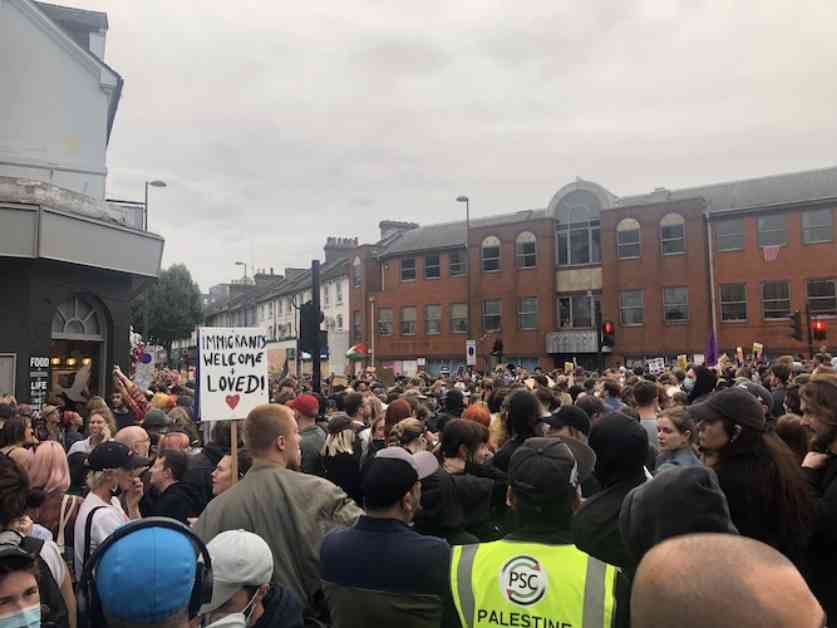For the past fifty years, the Protest Left has been celebrating the supposed defeat of the British far right in the mid-1930s during what is now known as The Battle of Cable Street. According to their narrative, a united front of Jews, Irish dockers, and the working class blocked Oswald Mosley’s British Union of Fascists from marching through their neighborhood, leading to their defeat. However, the reality is more complex.
Historians know that the fascist march was actually stopped by the Metropolitan Police after clashes with protestors, and Mosley ended up marching in the West End instead. Despite this, incidents of anti-Semitic violence continued in the aftermath of Cable Street, and public support for Mosley’s cause grew. It wasn’t until an Act of Parliament outlawed private armies and the outbreak of World War II that Mosley was finally defeated.
Fast forward to present day London, where recent far-right threats did not materialize, much to the relief of many Londoners. However, this does not mean that the threat of far-right extremism has been completely eradicated. The recent events in North Finchley and Walthamstow have drawn comparisons to the events of Cable Street, but victory against today’s far-right populists and extremists remains elusive.
The response of Keir Starmer’s government to extremist attacks on Muslim communities and other incidents of violence has been swift, with courts across England delivering publicized verdicts. The Metropolitan Police made it clear that they were prepared for any potential threats, and the government has been vocal in standing up for Muslim communities and condemning hate.
While the large protests organized by far-left groups may have helped deter far-right extremists, it also raises concerns about the effectiveness of these groups in addressing the broader issues facing Britain. London’s Muslims need allies who can offer more than just protest movements.
In Walthamstow, the presence of young men outside Asian shops and cafes, along with chants in support of Palestine, highlighted the concerns and fears of London’s Muslim community. While the pro-Palestine sentiment is understandable, there are also reports of anti-Semitic groups within the anti-fascist movement in Finchley, underscoring the complexity of the situation.
The events of Cable Street in 1936 did not defeat fascism or stop the persecution of Jews, and the violence between protesters and police may have even strengthened the far-right narrative. Similarly, today’s far-right threats against Muslims cannot be tackled solely through protests. It will require strong leadership, adherence to the rule of law, and a concerted effort to oppose extremism at all levels of society.
While progress has been made in London and elsewhere, there is still a long way to go in the fight against far-right extremism. By continuing to address the root causes of extremism and promoting unity and tolerance, we can work towards a safer and more inclusive society for all.





















